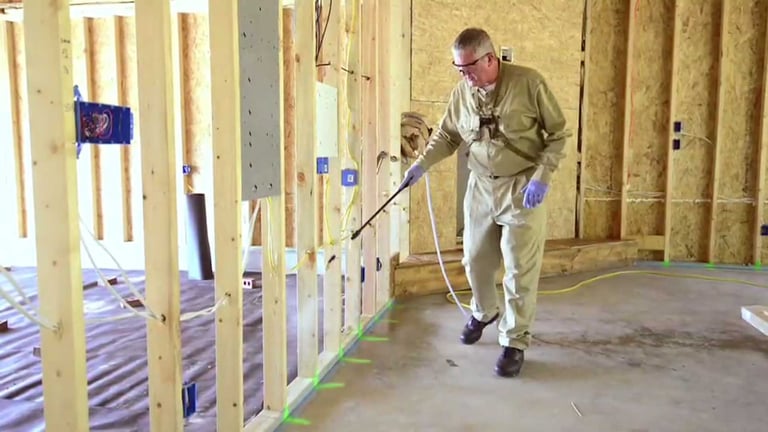New Construction Termite Pre-Treatment
A comparative of two termite pre-treatment options for new home construction: Termidor and Bora-Care. Termidor is effective but uses fipronil, a toxic chemical linked to groundwater contamination and bee population decline. In contrast, Bora-Care is applied directly to wood, eliminating environmental risks. It offers longer-lasting protection, lower costs, and greater eco-friendliness, despite the potential for green stains on treated wood. The post recommends Bora-Care for those prioritizing both home safety and environmental sustainability.
10/8/20242 min read


Termidor vs. Bora-Care: Choosing the Right Termite Pre-Treatment for New Construction
When building a new home, termite protection is crucial, but not all solutions are created equal. Two popular treatments are Termidor and Bora-Care, each with distinct benefits and drawbacks. Let’s take a closer look at how they compare.
The Termidor Approach
Termidor is widely used in pest control, primarily because of its effectiveness. However, its active ingredient, fipronil, poses significant risks to humans, pets, and wildlife. This chemical is applied to the soil and foundation of homes, with around 200 gallons needed for a typical 1,000-square-foot structure.
Fipronil has been linked to environmental issues, such as contaminating groundwater and harming ecosystems, especially in coastal communities with high water tables. It's also a major contributor to the decline of bee populations, essential for our food supply and biodiversity. While many countries have banned fipronil, it's still widely used in U.S. construction.
Bora-Care: A Safer Alternative
Bora-Care offers a safer, eco-friendly solution for termite prevention. Unlike Termidor, which is applied to the soil, Bora-Care is directly applied to the wood itself, providing protection from the inside out. This approach minimizes the risk of leaching into the environment and poses no threat to nearby water sources.
Additionally, Bora-Care’s effectiveness comes with a longer warranty period of up to 12-30 years when applied by professionals, compared to Termidor’s typical warranty of 5 to 15 years. It's also more cost-effective, often being half the price of Termidor treatments.
Why It Matters
In coastal areas with high water tables, Termidor's chemical footprint can be particularly harmful. Each treated home introduces a substantial amount of fipronil into the environment, raising concerns about long-term ecological impact. Bora-Care, on the other hand, focuses on preserving the environment while delivering durable termite protection.
While Bora-Care does have a downside of potentially leaving green stains on treated wood, its lower cost, environmental safety, and extended protection make it a superior choice for those committed to sustainability.
Conclusion
If you’re concerned about the impact of chemical treatments on your home and the environment, Bora-Care stands out as the better option. It offers a combination of long-term effectiveness, reduced ecological risk, and greater affordability compared to Termidor. By choosing Bora-Care, you're not just protecting your home from termites; you're also making a choice that’s better for the planet.
